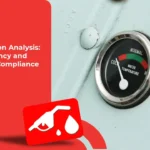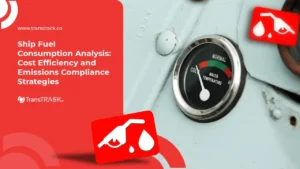The Right Process and Time for Car Periodic Service
Posted on June 26, 2024 by Nur Wachda Mihmidati

In maintaining optimal performance and reliability of a car, periodic service plays a crucial role. Every vehicle needs regular maintenance to avoid unexpected breakdowns and ensure road safety. By following a proper service schedule, you not only extend the life of your vehicle but also improve fuel efficiency and reduce the risk of serious breakdowns. Let’s explore through the following article TransTRACK, why regular servicing is important and how it can affect your daily driving experience.
Benefits of Periodic Car Servicing
Periodic car service has many important benefits, including:
Maintain Vehicle Performance
Regular servicing helps ensure that all vehicle components function properly. This can improve the performance of the engine, steering system, suspension, and more, so that the car remains in optimal condition during use.
Prevent Worse Damage
Through regular inspection and maintenance, technicians can detect minor issues before they develop into serious damage. This can save you bigger repair costs later on.
Driving Safety
A well-maintained car tends to be safer to drive. Regular servicing includes checking the brakes, lights, tires, and other safety systems that are crucial for the safety of you and your passengers.
Increases Vehicle Lifespan
By regularly maintaining your car, you can extend the life of your vehicle. Well-maintained components tend to last longer and wear less quickly.
Optimizing Fuel Efficiency
Timely servicing can also help maintain optimal fuel efficiency, as the engine and other systems operate properly.
By performing periodic services according to the schedule recommended by the manufacturer, you not only maintain the value of your vehicle’s investment but also ensure a safer and more comfortable driving experience.
Car Periodic Service Process
The car periodic service process includes several important steps to ensure the vehicle functions optimally and safely. Here are the details of the process:
Engine Inspection
This section includes regular oil and oil filter changes. Clean, fresh engine oil helps maintain optimal engine performance by reducing friction between moving parts. In addition, timely inspection and replacement of spark plugs is essential. Worn or malfunctioning spark plugs can disrupt combustion in the engine, potentially reducing fuel efficiency and overall vehicle performance.
Electrical System
This section focuses on the reliability of the car’s electrical system. The battery and charging system are checked to ensure that the battery remains well-charged and the car starts smoothly. In addition, the lights and other electrical systems are also checked to ensure all components are functioning properly. This includes checking the headlights, brake lights, turn signals, as well as other electrical safeguards to keep the car safe and well recognizable on the road.
Cooling System
This process involves checking and refilling the coolant. Sufficient and clean coolant is important to prevent the engine from overheating, which can seriously damage engine components. In addition, the radiator and hoses are also checked to ensure there are no leaks or other issues that could affect the efficiency of the cooling system.
Brake System
This part is related to the safety of the vehicle. Checking the thickness of the brake pads and the condition of the brake fluid is done to ensure optimal brake function. Thick brake pads are required to provide good braking, while clean and sufficient brake fluid is important to maintain effective and consistent brake performance.
Tire Inspection
This inspection includes tire rotation, air pressure checking, and wheel balancing and alignment. Regular tire rotation helps ensure even tire wear and increases overall tire life. Proper air pressure checks not only improve fuel efficiency, but also prevent tire failures that could lead to accidents. In addition, proper wheel balance and alignment help maintain vehicle stability and comfort while driving.
Steering and Suspension System
This section focuses on the comfort and stability of the vehicle. Inspection and lubrication of suspension components are carried out to ensure that the suspension functions properly, reducing vibrations and improving driving comfort. In addition, steering system checks are carried out to ensure that there are no leaks or excessive wear on steering system components, which can interfere with the maneuverability and safety of the vehicle.
By performing regular car servicing processes in accordance with these guidelines, you can ensure that your car stays in top condition, reduce the chances of serious damage, and increase safety and comfort during vehicle use.
When to Perform Periodic Car Service?
Performing regular car servicing is key to maintaining your vehicle’s performance and reliability. Here is a general guide on when to perform periodic servicing based on two main factors: mileage and time, as well as signs that the car needs additional maintenance:
Schedule Based on Mileage
In general, service is recommended every 5,000 km, 10,000 km, and so on. At these intervals, routine checks are usually carried out such as oil and oil filter changes, spark plug checks, as well as checking the electrical, cooling, brake, and other systems.
Shorter mileage between services may be required if the car is used under heavy conditions or is often exposed to dust or poor road conditions.
Schedule Based on Time
Servicing is also recommended every 6 months or 1 year, whichever comes first. The time factor is important as engine components and other systems also degenerate over time, regardless of the amount of mileage.
In a time-based service, a more detailed examination of the general condition of the vehicle and components that may need special attention after being used for a considerable period of time is usually performed.
Signs Your Car Needs Service
There are several signs that indicate a car needs maintenance earlier than the regular schedule, such as strange sounds from the engine or other components that are unusual.
Decreased vehicle performance can also be an indication that there are issues that need to be checked, such as lack of engine power, decreased fuel efficiency, or uncharacteristic handling.
Recognizing and responding to these signs promptly can help prevent further damage to your vehicle. While a regular service schedule is a general guide, it is important to be consistent in maintaining your car according to the manufacturer’s recommendations and your daily usage conditions. By performing regular servicing and responding to warning signs quickly, you can ensure your car stays in top condition and ready to go on every trip.
To maximize the efficiency and reliability of your vehicle, using TransTRACK’s Vehicle Maintenance System is the right choice. This system not only helps you schedule and track periodic services based on mileage and time factors, but also allows you to detect potential problems before they develop into more serious damage. With TransTRACK, you can optimize your vehicle’s maintenance, ensuring that every trip goes safely and smoothly. Don’t let your car get forgotten in the daily routine; renew your maintenance with TransTRACK today and enjoy greater safety and peace of mind while driving!
Topic :
Recommended Articles

 Bahasa Indonesia
Bahasa Indonesia








